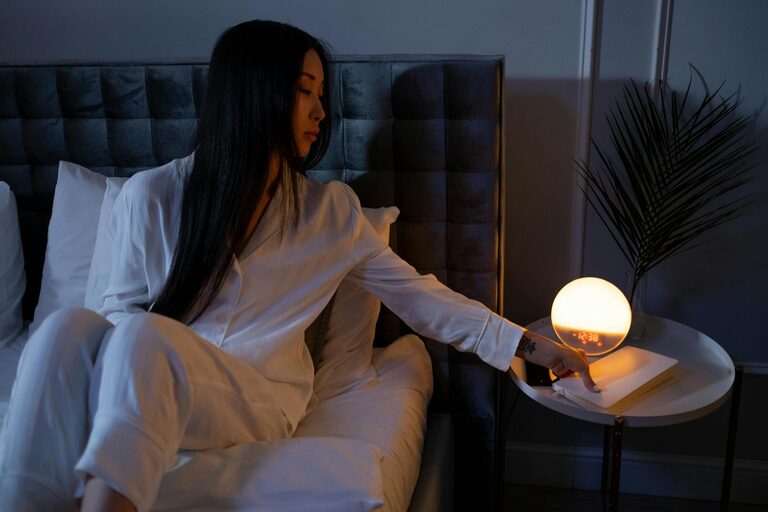
Getting a good night’s sleep is essential for your overall health and well-being. One of the most effective ways to improve sleep quality is by establishing a relaxing bedtime routine. This helps signal your body that it’s time to wind down, reduce stress, and prepare your mind for rest. In this post, we’ll explore easy, practical steps to craft a calming routine you can follow each night.
Why a Bedtime Routine Matters
Creating a consistent bedtime routine promotes better sleep by:
– Signaling your brain to prepare for sleep
– Lowering stress and anxiety
– Encouraging healthy sleep habits
– Improving sleep quality and duration
When your body knows what to expect before bed, it’s easier to fall asleep faster and stay asleep longer.
Step 1: Set a Consistent Sleep Schedule
The foundation of a good bedtime routine is a regular sleep schedule.
– Aim to go to bed and wake up at the same time every day, even on weekends.
– Consistency trains your internal clock (circadian rhythm), making it easier to fall asleep.
– Choose a bedtime that allows for 7 to 9 hours of sleep, depending on your personal needs.
Step 2: Wind Down with Relaxing Activities
Allow at least 30 minutes before bed to engage in calming activities that help your mind and body relax.
Ideas for Relaxing Pre-Sleep Activities
– Reading: Choose a light book or calming content that isn’t too stimulating.
– Meditation or Deep Breathing: Focus on slow, deep breaths or guided meditation to reduce tension.
– Journaling: Write down thoughts or gratitude to clear your mind.
– Gentle Stretching or Yoga: Helps release physical tension and promotes relaxation.
– Listening to Soothing Music: Soft melodies or nature sounds can ease you into sleep.
Avoid activities that raise alertness or stress such as work, intense exercise, or emotionally charged discussions.
Step 3: Limit Screen Time Before Bed
Exposure to blue light from screens interferes with the production of melatonin, a hormone that regulates sleep.
– Turn off phones, tablets, computers, and TVs at least 30 minutes to one hour before bedtime.
– If you must use screens, use a blue light filter or “night mode” setting.
– Consider replacing screen time with one of the relaxing activities mentioned above.
Step 4: Create a Comfortable Sleep Environment
Your bedroom should be a sanctuary for rest.
Tips to Improve Your Sleep Space
– Temperature: Keep the room cool, between 60-67°F (15-19°C) is generally ideal.
– Lighting: Use blackout curtains or an eye mask to block outside light.
– Noise: Minimize noise or use white noise machines to mask disruptive sounds.
– Bedding: Invest in comfortable mattresses and pillows that support good posture.
– Declutter: A tidy and organized room can promote a calmer mindset.
Step 5: Avoid Stimulants and Heavy Meals Late at Night
What you consume before bedtime can affect sleep quality.
– Avoid caffeine, nicotine, and other stimulants from late afternoon onward.
– Limit heavy or spicy meals within 2-3 hours of bed to prevent discomfort and indigestion.
– If you’re hungry close to bedtime, opt for a light snack that includes sleep-promoting nutrients such as a banana or yogurt.
Step 6: Develop a Pre-Sleep Ritual
Adding a specific sequence of activities to your routine can further train your brain to recognize bedtime cues.
Sample Pre-Sleep Routine
- Turn off screens an hour before bed.
- Dim the lights and prepare your sleep environment.
- Write in a journal or practice meditation for 10-15 minutes.
- Read a calming book for 20 minutes.
- Brush your teeth and wash your face.
- Sip on a warm, caffeine-free herbal tea like chamomile if desired.
- Get into bed and practice deep breathing until you feel ready to sleep.
Feel free to customize your routine based on what relaxes you the most.
Tips for Staying Consistent
– Keep a bedtime routine checklist to help track your progress.
– Avoid watching the clock if you can’t fall asleep quickly; instead, focus on relaxing your body.
– Be patient—habits take time to form, and the benefits will steadily increase with consistency.
– Share your goals with someone close who can encourage your new routine.
When to Seek Professional Help
If you consistently struggle with falling asleep, staying asleep, or feel tired despite a good routine, it may be time to consult a healthcare professional. Sleep disorders like insomnia, sleep apnea, or restless leg syndrome require specialized care.
—
By investing time into creating a relaxing bedtime routine, you set yourself up for healthier, more refreshing sleep. Experiment with different calming activities and environmental tweaks until you find the perfect combination for your needs. Sweet dreams!
